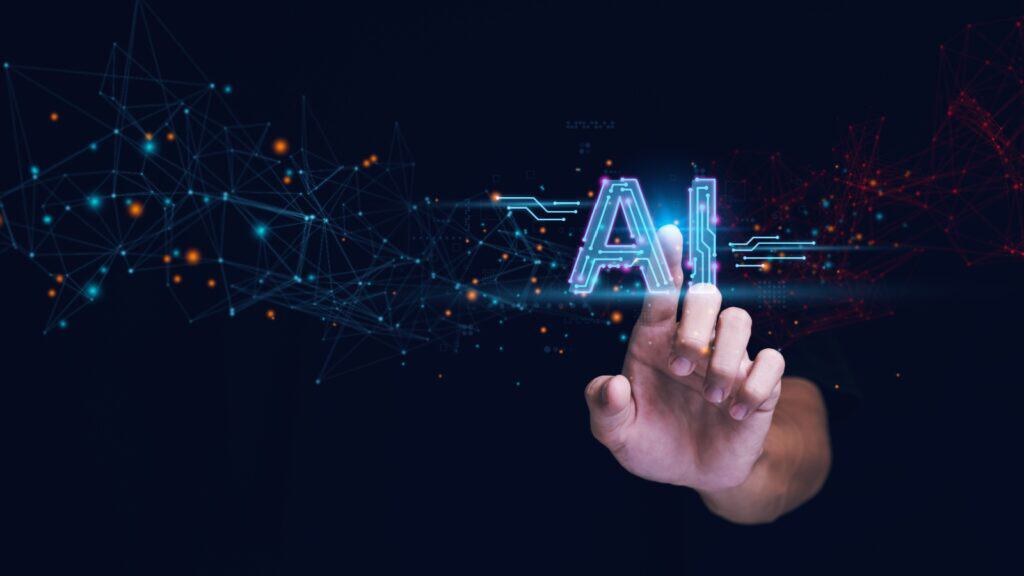10 Unexpected Ways AI Is Changing the World
Artificial Intelligence (AI) has rapidly evolved from a futuristic concept to a transformative force impacting numerous aspects of our daily lives. While many are familiar with AI’s role in smartphones, virtual assistants, and recommendation systems, its applications extend far beyond these common uses. From creating art to exploring the deepest parts of our oceans, AI is being utilized in innovative ways that might surprise you. This article explores ten unexpected and groundbreaking applications of AI across various fields, highlighting the technology’s versatility and its potential to revolutionize different sectors of our world.
1. AI in Ocean Exploration

The mysteries of the deep sea have long intrigued scientists, but the vastness and inaccessibility of the ocean make exploration challenging. AI is now playing a pivotal role in oceanography by enabling autonomous underwater vehicles (AUVs) to navigate and collect data in treacherous and previously unreachable areas. These AI-powered AUVs can map the ocean floor, monitor marine life, and even identify new species without risking human lives. According to SwissCognitive, AI enhances the capabilities of underwater robots, allowing them to make decisions in real-time based on sensory inputs, which accelerates discoveries and helps scientists understand the ocean’s complex ecosystems.
2. AI-Generated Art

The art world has witnessed a paradigm shift with the advent of AI-generated artwork. In a landmark event in 2018, an AI-created portrait titled “Portrait of Edmond de Belamy” was sold at Christie’s auction house for an astonishing $432,500, challenging traditional notions of creativity and authorship. This piece was produced using a Generative Adversarial Network (GAN), which analyzed thousands of existing artworks to generate a new image that mimics human artistic styles. As discussed in American Scientist, AI algorithms are now capable of creating unique pieces of art, raising questions about the role of the artist and the definition of creativity in the digital age.
3. AI in Agriculture

Agriculture is undergoing a technological revolution, with AI at the forefront of increasing efficiency and sustainability. AI-powered robots are now able to identify and harvest ripe fruits and vegetables autonomously. For example, researchers have developed robots that use computer vision and deep learning to pick apples at a rate of one every seven seconds, significantly boosting productivity. According to an article on Technology Magazine, these advancements have the potential to address labor shortages and reduce waste in the agricultural sector, ultimately contributing to global food security.
4. AI in Astronomy

The vastness of space generates an overwhelming amount of data, making it difficult for astronomers to analyze without assistance. AI is now essential in processing this data, identifying patterns, and making new discoveries. AI algorithms have been used to detect exoplanets by analyzing the subtle dimming of stars, with up to 96% accuracy in identifying valid signals, as reported by Algoworks. Additionally, AI helps in classifying galaxies, predicting cosmic events, and even searching for extraterrestrial intelligence by sifting through signals that might indicate alien communications.
5. AI in Architecture

Architects are leveraging AI to push the boundaries of design and efficiency. Generative design, powered by AI algorithms, allows architects to input design goals and constraints, such as space requirements, materials, and budget. The AI then generates numerous design alternatives, often suggesting innovative solutions that might not have been considered otherwise. As highlighted by Technology Magazine, this approach not only accelerates the design process but also optimizes buildings for energy efficiency, sustainability, and aesthetic appeal.
6. AI in Conflict Resolution

Workplace conflicts can negatively impact productivity and employee satisfaction. AI is being used in human resources to analyze communication patterns and identify potential areas of conflict within teams. By processing data from emails, messages, and meeting interactions, AI can detect signs of tension or misunderstandings. As per Data Dynamics Inc., AI systems can suggest interventions or mediation strategies to address issues before they escalate. While human judgment is still crucial, AI provides valuable insights that help maintain a harmonious and efficient work environment.
7. AI in Personalized Education

Education is being transformed through AI-driven personalized learning experiences. Adaptive learning platforms utilize AI to assess individual student performance and tailor educational content accordingly. By analyzing data on how students interact with materials, AI can identify strengths, weaknesses, and learning styles. According to Hyperspace, this allows educators to provide customized resources that enhance engagement and improve learning outcomes. AI tutors can also offer one-on-one assistance, making education more accessible and effective for diverse learners.
8. AI in Fashion Design

The fashion industry is embracing AI to innovate in design and trend forecasting. AI algorithms analyze vast amounts of data from social media, runway shows, and retail sales to predict upcoming fashion trends. Designers use AI to generate new clothing designs by inputting parameters like fabric types, colors, and styles. This technology helps in creating collections that resonate with consumer preferences and reduces the risk of overproduction. As discussed in Technology Magazine, AI’s ability to predict trends and automate design processes is revolutionizing how fashion brands operate.
9. AI in Wildlife Conservation

Conservationists are turning to AI to protect endangered species and preserve biodiversity. AI-powered drones and camera traps equipped with image recognition software can monitor wildlife populations in real-time. These systems can identify individual animals, track their movements, and detect poaching activities. According to an article on Algoworks, AI helps analyze large datasets that would be impossible for humans to process manually, enabling quicker responses to threats and more effective conservation strategies.
10. AI in Culinary Innovation

The culinary world is experiencing a fusion of technology and gastronomy through AI applications. Chefs and food scientists use AI to create new recipes and flavor combinations by analyzing thousands of existing recipes and ingredient properties. AI systems can suggest unique pairings and even optimize recipes for nutritional content or dietary restrictions. As noted by Data Dynamics Inc., AI-driven culinary innovation is pushing the boundaries of creativity in the kitchen and helping chefs cater to evolving consumer tastes.
Conclusion

These ten examples illustrate that AI’s influence reaches far beyond traditional applications, touching diverse and sometimes unexpected areas of our lives. From exploring the uncharted depths of the ocean to redefining artistic creation, AI is proving to be a versatile tool that enhances human capabilities and fosters innovation. As AI technology continues to advance, we can anticipate even more surprising and transformative applications emerging across various industries and disciplines. Embracing these developments will not only drive progress but also help address some of the most pressing challenges facing our world today.
What Else Should You Know About AI?

- AI Tools In Education: A Threat To Integrity Or A New Learning Ally?
- AI Girlfriends: A Step Toward Equality or a Dangerous Setback for Women?
- Why Asking AI for Medical Advice Can Be Dangerous: A Cautionary Tale
- AI Jesus Might ‘Listen’ to Your Confession, But It Can’t Absolve Your Sins − a Scholar of Catholicism Explains
Join Us

Join us on this empowering journey as we explore, celebrate, and elevate “her story.” The Queen Zone is not just a platform; it’s a community where women from all walks of life can come together, share their experiences, and inspire one another. Welcome to a space where the female experience takes center stage. Sign up for our newsletter so you don’t miss a thing, Queen!







